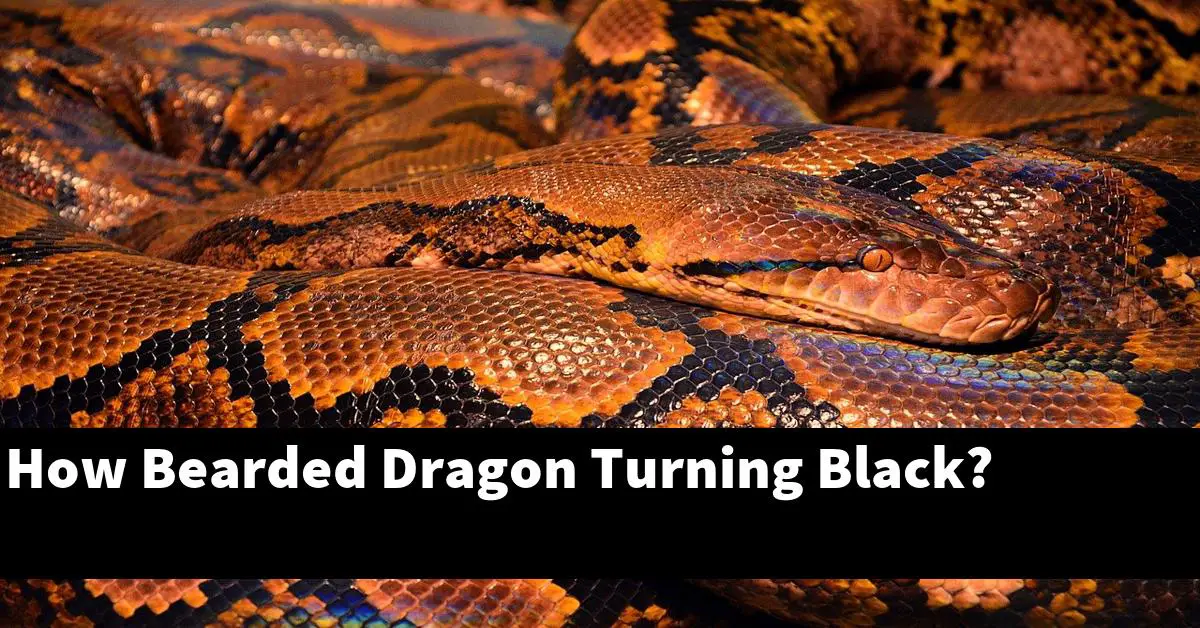If you’ve ever wondered why your Bearded Dragon has changed color, you’re not alone. Many Beardie owners report their dragons turning black, usually around the head and neck area.
While it can be alarming at first, it’s usually nothing to worry about. In this article, we’ll explain the reasons why Bearded Dragons turn black and what you can do about it.
Table of Contents
What causes it and how to prevent it?
A bearded dragon that turns black may be experiencing a health condition known as melanosis. Melanosis is a condition in which the body produces too much melanin, the pigment that gives skin its color.
Melanosis can be caused by a number of factors, including exposure to ultraviolet (UV) light, stress, and certain medications. While melanosis is not usually harmful, it can be unsightly and may cause the bearded dragon to feel uncomfortable.
If your bearded dragon turns black, make an appointment with your veterinarian to have them check for melanosis and other potential health concerns.
How to care for them?
If your bearded dragon is turning black, there are a few things you can do to care for them. First, it is important to make sure they are getting enough food and water. Bearded dragons are mostly herbivorous, so they need a diet that is high in plants and low in protein.
You can also supplement their diet with vitamins and minerals to ensure they are getting all the nutrients they need. Second, you need to provide them with a warm, dry environment. Bearded dragons are native to desert climates, so they need a habitat that is warm and dry.
You can achieve this by using a heat lamp and a humidifier. Finally, you need to make sure they are getting enough exercise. Bearded dragons are active creatures and need to be able to move around to stay healthy. You can provide them with a large enclosure with plenty of room to roam, or you can take them out for regular walks. By following these simple care tips, you can help your bearded dragon stay healthy and happy.
Bearded dragon turning black: what to do if it happens?
If your bearded dragon is turning black, it’s important to take action quickly. There are a few possible causes of this problem, and each one requires different treatment.
One possibility is that your bearded dragon is experiencing a condition called melanosis. This is a build-up of melanin in the skin, and it can be caused by a variety of factors, including stress, exposure to UV light, and certain infections. Melanosis can be treated with medications, but it’s important to catch it early.
Another possibility is that your bearded dragon is shedding. This is a normal process, but sometimes shedding can be incomplete, leaving dark patches of skin. If this is the case, you can help your bearded dragon by gently rubbing the affected areas with a damp cloth.
If your bearded dragon is turning black, it’s important to take action quickly to determine the cause and start treatment. With proper care, your bearded dragon will be back to its normal self in no time.
Summary
As you can see, there are many possible explanations for why your bearded dragon might be turning black. If you’re concerned about your pet’s health, be sure to consult with a veterinarian to get a definitive answer. In the meantime, enjoy watching your unique lizard change colors!

